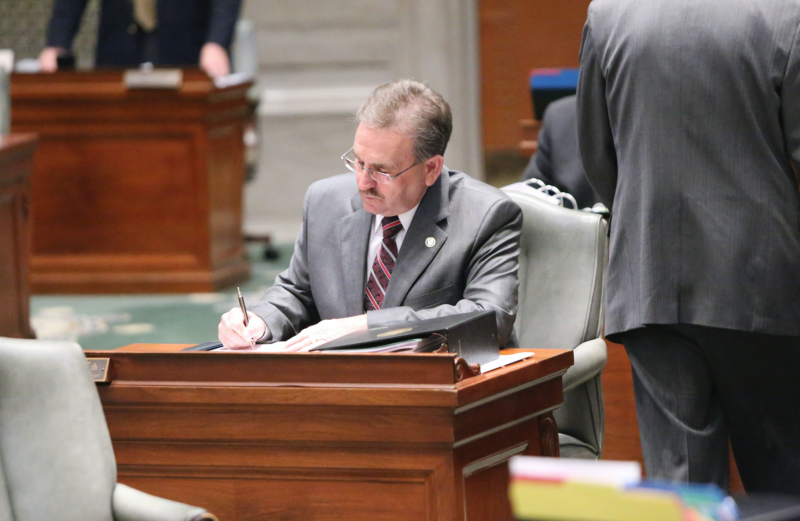JEFFERSON CITY, Mo. — The Senate spent about 11 hours debating and discussing legislation expanding access to charter schools Tuesday before eventually laying the bill over.
SB 292 — from Republican state Sen. Bill Eigel — would allow charter schools to open and operate in districts within a charter county or in a city with a population greater than 30,000. In most cases, the charter’s sponsor would also need signatures from parents of qualified students equal to at least 50 percent of the number of seats the charter will start with, according to the bill.
Lawmakers on both sides of the aisle expressed concerns with the legislation Tuesday with discussions lasting until early Wednesday morning. Sens. Gary Romine and Doug Libla, both Republicans, pointed to the number of charter schools that have closed throughout the state and how much public money was lost on them.
“The facts spell out charter schools aren’t a panacea of education,” Libla, who spent significant time filibustering Tuesday, said.
After several hours of filibuster, Libla also blasted the caucus for not laying over the bill earlier, saying he wasn’t aware charter schools was a “priority.”
Democratic Sen. Jill Schupp stressed concerns with charter schools not having the same accountability or standards for courses that public schools have.
“Do we help a student become a well-rounded human being by simply testing in math and English?” Schupp said.
Eigel said that question was best left up to the parents but contended he’s open to some additional accountability measures.
Sen. Lauren Arthur, a Democrat and former teacher, was also critical of the bill. She introduced an amendment to the bill that would require a positive vote from the population before a charter school could open.
“Any taxpayers or any voters in that district should be able to weigh in on this debate,” Arthur explained.
Eigel noted that standard isn’t applied to public schools and was not supportive of applying different standards.
Ultimately, the amendment failed after a standing vote was tallied.
Schupp also expressed concerns that the bill would allow a sponsor to revoke a charter during the middle of the school year, potentially “disrupting lives in the middle of the school year.” Eigel agreed that language should be addressed.

Kaitlyn Schallhorn was the editor in chief of The Missouri Times from 2020-2022. She joined the newspaper in early 2019 after working as a reporter for Fox News in New York City.
Throughout her career, Kaitlyn has covered political campaigns across the U.S., including the 2016 presidential election, and humanitarian aid efforts in Africa and the Middle East.
She is a native of Missouri who studied journalism at Winthrop University in South Carolina. She is also an alumna of the National Journalism Center in Washington, D.C.
Contact Kaitlyn at kaitlyn@themissouritimes.com.







